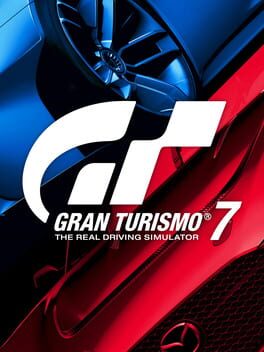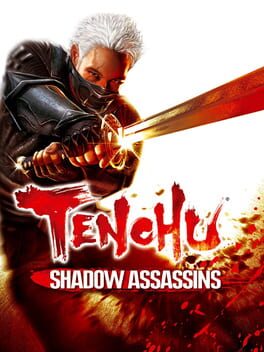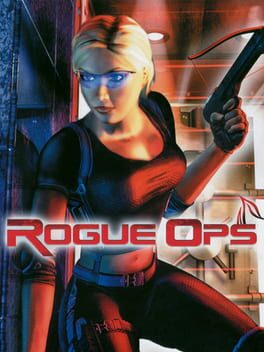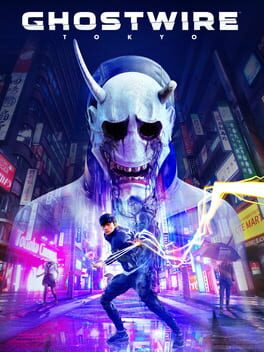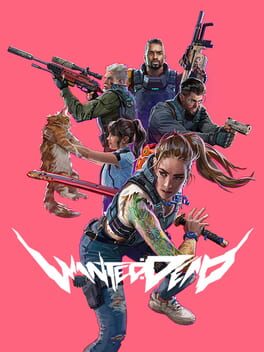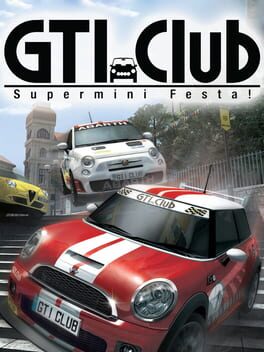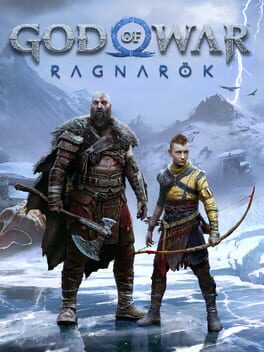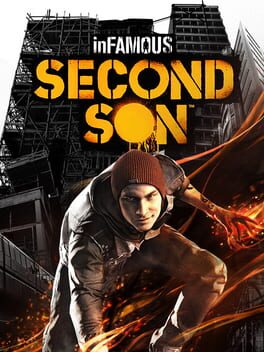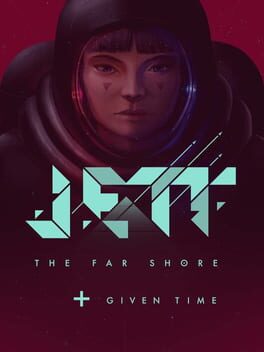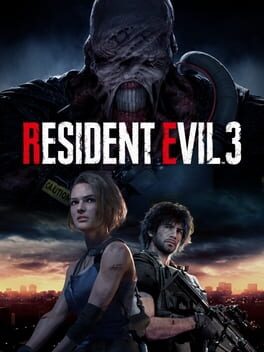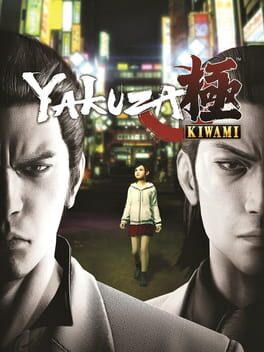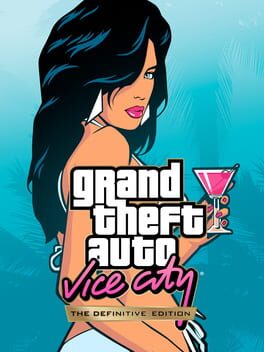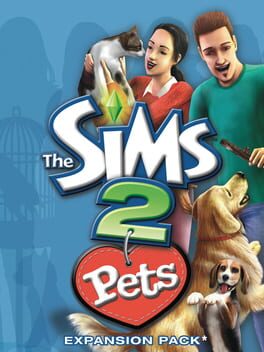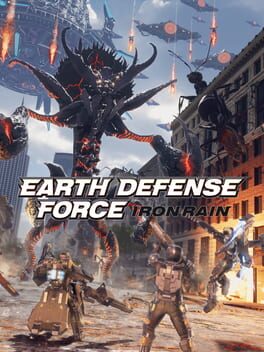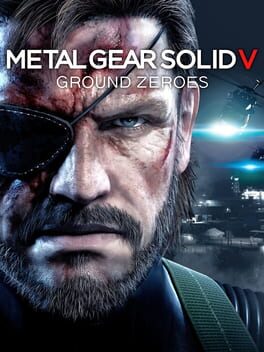bamdumtss
2022
It's been a year (plus a week) since the game's launch, and lots of things has happened so I figured that I should try reviewing it again. Do note that I'm talking about this game from a singleplayer focused perspective.
I always enjoyed racing games but no racing franchise has stuck with me like GT does. My first GT game is Gran Turismo on PSP, and since then I only skipped GT6 (my PS3 was broken and I saved up for a PS4 instead).
GT games have this unique, anachronistic vibe that other games just don't even try to replicate, and GT7 has pretty much doubled down on that vibe. The main menu UI features a city/town scenery that seems to be structurally made for car enthusiasts to live in, complete with the most relaxing cafe ever made in a video game, which serves as the hub for the singleplayer campaign. In the campaign, you'll meet various characters (many of them based on real life people in the car industry and professional GT scene) that serves as an info source for random automobile history and driving tips, and while there's no voice acting to support them, they're presented in such a non-chalant way that is weirdly wholesome. There's a whole in-game museum that not only notes many important moments in automobile history, but also general world history, and it feels wild to see the game showing what year Windows 95 releases when you're browsing for car history. All of this is supported by a great selection of elegant and relaxing music in the soundtrack. It truly feels like Polyphony Digital (and by extension, the game) truly adores car culture, and I'm sure many other racing games feel the same way, but nothing else presents it like this. Some may call the game pretentious, but I call it endearing.
The racing itself is at its greatest form yet, as the physics feel even more refined than GT Sport. The average joe's experience is elevated by the Dualsense, as the controller's flagship features are implemented in a way that is not only pleasant to experience, but also functionally useful. This includes feeling the adaptive triggers fight back when your car is pushed too far, or feeling the haptic feedback when your car switch gears. I'm sure you'll be more immersed if you get yourself a decent racing set, but for people like me that doesn't want to buy one of those, it has helped me connect to the vehicles I'm driving to a much deeper level. It's definitely up there in terms of best Dualsense implementation.
The singleplayer experience includes completing "menus" from the cafes by doing certain activities (mostly racing in an event), tackling the series' iconic driving license challenges, mastering each of the tracks in the circuit experience time trials, and a few more. The game's regular races are mostly about chasing the AI from the very back of the pack, and as somebody who is decent but not great at racing games, they're definitely easy to beat, provided you came in prepared with the right car (and right tuning). Fortunately GT7 doesn't disappoint on the series tradition of addicting "one-more-try" driving license and time trials. Also, they have begun to publicly showcase Sony's GT Sophy AI that will hopefully someday replace the game's current braindead AI, and I'll say that Sophy is much more fun to race against.
Since its launch, the game has experienced a few big hiccups. The infamous server blackout that lasted more than a week is the real life example of why the always online requirement sucks. The devs has been accused of trying to push people into the microtransaction system, as many of the game's activities early on rewards you with so little credits in comparison to the prices of the cars and car parts. While it's unlikely that the always online requirement will ever be addressed soon, the game's economy has been improved by a lot, and there's a decent amount of activities to choose from if you want to get a lot credits in the endgame. I personally never felt the need or was annoyed by the microtransactions, and I have bought pretty much 90% of the cars I wanted to have.
The one area that I think the game especially needs to do better at is periodic special events. Last December, there was a anniversary period for the GT series, and it obviously was close to Christmas, so the game had new Christmas themed music for the nearly whole month, in addition to extra credit bonus if you race in certain multiplayer events, and special singleplayer challenges. I wish that the game did more events like this, possibly featuring new special game modes or anything that will pull back casual players who are not playing the game regularly.
As I end this review, I would like to make a confession. Like many people, I can't say that I liked car culture. I live in a crowded city where cars are the main mode of transportation, and it annoys me to no end that I keep getting stuck in traffic even with my nimble scooter, and there's no decent public transport. Not to mention the noise and gas pollution. I usually approach racing games from a purely fun seeking perspective rather than a love for cars, but GT7's flamboyant and honest presentation of its genuine love for the culture has made me actually appreciate cars. The other GT games I played are great, but they never felt this focused in terms of showing what car culture is really about. While I will still support reducing the grasp that car companies have over our lives, I understand that as a human being, there's lots of things to love about cars, and like many other things in life, they can serve to connect individuals and communities. I can't think of a more impressive feat that a racing game could do. Thus, I can safely say that its my favorite racing game of all time, and there's more to look forward to in the future.
I always enjoyed racing games but no racing franchise has stuck with me like GT does. My first GT game is Gran Turismo on PSP, and since then I only skipped GT6 (my PS3 was broken and I saved up for a PS4 instead).
GT games have this unique, anachronistic vibe that other games just don't even try to replicate, and GT7 has pretty much doubled down on that vibe. The main menu UI features a city/town scenery that seems to be structurally made for car enthusiasts to live in, complete with the most relaxing cafe ever made in a video game, which serves as the hub for the singleplayer campaign. In the campaign, you'll meet various characters (many of them based on real life people in the car industry and professional GT scene) that serves as an info source for random automobile history and driving tips, and while there's no voice acting to support them, they're presented in such a non-chalant way that is weirdly wholesome. There's a whole in-game museum that not only notes many important moments in automobile history, but also general world history, and it feels wild to see the game showing what year Windows 95 releases when you're browsing for car history. All of this is supported by a great selection of elegant and relaxing music in the soundtrack. It truly feels like Polyphony Digital (and by extension, the game) truly adores car culture, and I'm sure many other racing games feel the same way, but nothing else presents it like this. Some may call the game pretentious, but I call it endearing.
The racing itself is at its greatest form yet, as the physics feel even more refined than GT Sport. The average joe's experience is elevated by the Dualsense, as the controller's flagship features are implemented in a way that is not only pleasant to experience, but also functionally useful. This includes feeling the adaptive triggers fight back when your car is pushed too far, or feeling the haptic feedback when your car switch gears. I'm sure you'll be more immersed if you get yourself a decent racing set, but for people like me that doesn't want to buy one of those, it has helped me connect to the vehicles I'm driving to a much deeper level. It's definitely up there in terms of best Dualsense implementation.
The singleplayer experience includes completing "menus" from the cafes by doing certain activities (mostly racing in an event), tackling the series' iconic driving license challenges, mastering each of the tracks in the circuit experience time trials, and a few more. The game's regular races are mostly about chasing the AI from the very back of the pack, and as somebody who is decent but not great at racing games, they're definitely easy to beat, provided you came in prepared with the right car (and right tuning). Fortunately GT7 doesn't disappoint on the series tradition of addicting "one-more-try" driving license and time trials. Also, they have begun to publicly showcase Sony's GT Sophy AI that will hopefully someday replace the game's current braindead AI, and I'll say that Sophy is much more fun to race against.
Since its launch, the game has experienced a few big hiccups. The infamous server blackout that lasted more than a week is the real life example of why the always online requirement sucks. The devs has been accused of trying to push people into the microtransaction system, as many of the game's activities early on rewards you with so little credits in comparison to the prices of the cars and car parts. While it's unlikely that the always online requirement will ever be addressed soon, the game's economy has been improved by a lot, and there's a decent amount of activities to choose from if you want to get a lot credits in the endgame. I personally never felt the need or was annoyed by the microtransactions, and I have bought pretty much 90% of the cars I wanted to have.
The one area that I think the game especially needs to do better at is periodic special events. Last December, there was a anniversary period for the GT series, and it obviously was close to Christmas, so the game had new Christmas themed music for the nearly whole month, in addition to extra credit bonus if you race in certain multiplayer events, and special singleplayer challenges. I wish that the game did more events like this, possibly featuring new special game modes or anything that will pull back casual players who are not playing the game regularly.
As I end this review, I would like to make a confession. Like many people, I can't say that I liked car culture. I live in a crowded city where cars are the main mode of transportation, and it annoys me to no end that I keep getting stuck in traffic even with my nimble scooter, and there's no decent public transport. Not to mention the noise and gas pollution. I usually approach racing games from a purely fun seeking perspective rather than a love for cars, but GT7's flamboyant and honest presentation of its genuine love for the culture has made me actually appreciate cars. The other GT games I played are great, but they never felt this focused in terms of showing what car culture is really about. While I will still support reducing the grasp that car companies have over our lives, I understand that as a human being, there's lots of things to love about cars, and like many other things in life, they can serve to connect individuals and communities. I can't think of a more impressive feat that a racing game could do. Thus, I can safely say that its my favorite racing game of all time, and there's more to look forward to in the future.
A bad stealth game that showcases how limited the PSP can be if you don't play to its strengths. It's restrictive to a fault, with corridor level design, atrocious draw distance, limited amount of tools to use with very basic usage, uninspiring combat, and clunky tank controls. I kinda like the dark, broody atmosphere of the levels, and I guess the story is pretty neat, but that's it.
2003
This is one of the many stealth games that popped up during Metal Gear Solid's heyday. It's basically a clunkier and far less interesting version of the early Splinter Cell titles with none of the political intrigue.
The movement uses not-so-obvious tank controls, and things especially get cumbersome when you're aiming and shooting, since you can only strafe while aiming. There's also no dedicated jump button, you have to look at things directly in order to interact, including looking at ledges to grab on to them, which is not ideal.
Many parts of the game are quite dark or in night time since you can use shadows to hide, and it can be very hard to see what's around you since your nightvision goggles is only available in first person view with a ridiculously small field of view.
The story is very unenjoyable, it's a by the numbers revenge story. All of the characters are unlikeable and they're often very standoff-ish towards each other. It's a shame, I kinda like the main character's design, I just wish she would stop being so sassy.
I guess the one thing I liked is you can throw shurikens to kill enemies, that's kinda badass. Can't say much more.
The movement uses not-so-obvious tank controls, and things especially get cumbersome when you're aiming and shooting, since you can only strafe while aiming. There's also no dedicated jump button, you have to look at things directly in order to interact, including looking at ledges to grab on to them, which is not ideal.
Many parts of the game are quite dark or in night time since you can use shadows to hide, and it can be very hard to see what's around you since your nightvision goggles is only available in first person view with a ridiculously small field of view.
The story is very unenjoyable, it's a by the numbers revenge story. All of the characters are unlikeable and they're often very standoff-ish towards each other. It's a shame, I kinda like the main character's design, I just wish she would stop being so sassy.
I guess the one thing I liked is you can throw shurikens to kill enemies, that's kinda badass. Can't say much more.
2022
I already wrote a longer review back when I finished the main story, and now that I have got the platinum trophy for this, I want to add some more thoughts.
Running around the map in order to get the all the collectibles has only strengthened my opinion of how good this depiction of Tokyo is, as a open world location. I truly appreciate the verticality of the exploration, and how dense the city feels, not just in the literal sense. Gliding and zipping from one building to another (or transitioning between street level and above) just feels so fun, and it feels great to walk in a walkable city. Not to mention seeing how beautiful the city can be, even if nobody's around to make it more lively. Exploring Tokyo's unique brand of urban architecture has not been done in this level of quality before in games.
While the activities that you do in the world is relatively straightforward and ordinary, I think the game successfully compensates for that by presenting Japanese culture and history through the things that you discover, with impressive level of care. As somebody who never really studied Japan seriously, I was very entertained by the bits of information and lore that the game gave me. Whether it's for a piece of everyday item in Japan, a piece of historical significance, a landmark, or tales of the supernatural, it all contributes to a sense of understanding the place I'm in, which also helps me appreciate the open world area more. It's almost like digital tourism with a supernatural twist.
If we're talking about animals in games, Ghostwire probably has one of the most fun depictions of them. It's so fun to read thoughts of cats and dogs that you pass by, as they talk about the disappearance of the humans, or just talking about being hungry and tired. They're even integrated into some of the side content, as their thoughts can give hints and directions. Also, you can pet most of them, and it feels very relaxing to do so. There's shapeshifting tanukis too, and finding them all is a worthwhile process. Interacting with all of them certainly made exploring the open world feel much less lonely.
I do wish that we get better rewards for completing the game, like a tease to a possible sequel or something. The very last set of rewards are just upgrades for another playthrough, which isn't too satisfying for me.
Well that's it. I'll finish by saying that Ghostwire is one of my favorite open world games already. I'm very sure that the sequel has the potential to be one of my all time favs in general, as this game got a lot of things that can be improved, but as it stands it's still a very memorable game with an unique personality.
Running around the map in order to get the all the collectibles has only strengthened my opinion of how good this depiction of Tokyo is, as a open world location. I truly appreciate the verticality of the exploration, and how dense the city feels, not just in the literal sense. Gliding and zipping from one building to another (or transitioning between street level and above) just feels so fun, and it feels great to walk in a walkable city. Not to mention seeing how beautiful the city can be, even if nobody's around to make it more lively. Exploring Tokyo's unique brand of urban architecture has not been done in this level of quality before in games.
While the activities that you do in the world is relatively straightforward and ordinary, I think the game successfully compensates for that by presenting Japanese culture and history through the things that you discover, with impressive level of care. As somebody who never really studied Japan seriously, I was very entertained by the bits of information and lore that the game gave me. Whether it's for a piece of everyday item in Japan, a piece of historical significance, a landmark, or tales of the supernatural, it all contributes to a sense of understanding the place I'm in, which also helps me appreciate the open world area more. It's almost like digital tourism with a supernatural twist.
If we're talking about animals in games, Ghostwire probably has one of the most fun depictions of them. It's so fun to read thoughts of cats and dogs that you pass by, as they talk about the disappearance of the humans, or just talking about being hungry and tired. They're even integrated into some of the side content, as their thoughts can give hints and directions. Also, you can pet most of them, and it feels very relaxing to do so. There's shapeshifting tanukis too, and finding them all is a worthwhile process. Interacting with all of them certainly made exploring the open world feel much less lonely.
I do wish that we get better rewards for completing the game, like a tease to a possible sequel or something. The very last set of rewards are just upgrades for another playthrough, which isn't too satisfying for me.
Well that's it. I'll finish by saying that Ghostwire is one of my favorite open world games already. I'm very sure that the sequel has the potential to be one of my all time favs in general, as this game got a lot of things that can be improved, but as it stands it's still a very memorable game with an unique personality.
2023
Wanted: Dead is a very unruly throwback to the PS3-360 era of third person action games. It's one of those games that has a clear vision of what it wants to do, and yet can't help but be distracted and stumble the whole way through its path.
Let's start with the best part: the combat. At its peak, the combat is absolutely ferocious, brutal and stylish. You'll be juggling your ballistic armaments and katana as enemies approach you with either the intent to intimately cut you up or blast you from afar. The game communicates its "intended" playstyle from early on quite well, as melee enemies are much harder to take down with guns even with headshots, and enemies with guns shoots you just enough to put a chunk of your health down if you run straight at them. You can customize your main long gun and pistol to change how it behaves (sacrificing damage for stagger, recoil control for accuracy, and so on). The pistol works more like a stagger button, as you can immediately start attacking them with a katana after you use your pistol to stun them for a second. You can also dodge, and parry attacks with your katana and handgun. Some attack are only parry-able if you use your handgun, but you can unlock an upgrade through the skill tree to remove this limitation. You can replenish your health with stimpaks that are replenished in each checkpoint, and you can also get one free revive in each checkpoint (although they take away this ability sometimes). You can also get some of your health back if you do a finishing move fast enough, but its usually not easy enough to be a reliable option. There's more to talk about, but in short, it's an absolute hoot of a combat system that only gets much more satisfying to handle as you progress through the skill tree. While the enemy AI and level design are mostly average, and many of the encounters doesn't quite showcase the full potential of the system, the combat always manages to shine through the rubble. It's honestly one of my favorite combat systems in recent memory, if we're just talking about the core mechanics. The only thing about the combat that I purely dislike is the regular fragmentary grenades, they're so hard to throw accurately and thus becomes unpractical.
The combat sections always end with a boss fight, and for the most part they're decent. They don't really have a lot of unique moves, but the challenge they provide is a step above the rest of the game, in a good way. The notable ones include the third boss, which has a cool invisibility cloak, and the very last one, which has the most flashy moves. I did not like the two tank boss fights.
The story is, simply put, incomprehensible. Nobody talks like a regular human, and none of the conversations gives you an idea of what is really going on with the story. All I know for sure is that you're playing as a former war criminal turned Hong Kong "special" police, and you have 3 other compatriots (and a cat-loving gunsmith) in your crew. None of these characters are likable. There's some semblance of a story with your main character that only gets clearer when you finish the game, but even that is not really substantial. Despite all of this, I still enjoy the cutscenes and dialog ironically, mostly because of how weird the voice acting is in this game. It's like they're deliberately trying to sabotage the story.
Outside of the combat sections, you get to explore the Police HQ. You can talk to other policemen (and find out how unpopular your crew is), pick up some documents, and most importantly, play minigames! There's a crane game where you can collect character figurines and music tracks, a karaoke and ramen eating minigame (both are rhythm based), a firing range complete with time and score attack modes, and a original side scrolling shoot em' up arcade game. These mini games add a strong flavor of quirkiness to the game, and is much appreciated, even if they're infected by the unpolished-ness of the main game.
This game is quite rough around the edges. On the PS5, the game has randomly crashed on me 5 times in my 9 hour playthrough. There are times where the framerate plummets for a couple seconds, although it's not too often. The very last hour of the game features a lot of tight spaces that can be hard for the camera to handle, resulting in you getting surprised by an off screen enemy. There's more quirks here, just know that they can be quite annoying if you end up getting the short end of the stick.
In short, Wanted: Dead is much more interesting than the sum of its ingredients, for better and worse. And yet, that's why I enjoyed it so much. It represents mid-budget video games at its most chaotic form, born out of a desire to stand out and provide a breath of fresh air, and it definitely accomplishes that. Maybe the best it can hope for is a cult classic status in the future, and I'm sure the devs will be okay with that.
Let's start with the best part: the combat. At its peak, the combat is absolutely ferocious, brutal and stylish. You'll be juggling your ballistic armaments and katana as enemies approach you with either the intent to intimately cut you up or blast you from afar. The game communicates its "intended" playstyle from early on quite well, as melee enemies are much harder to take down with guns even with headshots, and enemies with guns shoots you just enough to put a chunk of your health down if you run straight at them. You can customize your main long gun and pistol to change how it behaves (sacrificing damage for stagger, recoil control for accuracy, and so on). The pistol works more like a stagger button, as you can immediately start attacking them with a katana after you use your pistol to stun them for a second. You can also dodge, and parry attacks with your katana and handgun. Some attack are only parry-able if you use your handgun, but you can unlock an upgrade through the skill tree to remove this limitation. You can replenish your health with stimpaks that are replenished in each checkpoint, and you can also get one free revive in each checkpoint (although they take away this ability sometimes). You can also get some of your health back if you do a finishing move fast enough, but its usually not easy enough to be a reliable option. There's more to talk about, but in short, it's an absolute hoot of a combat system that only gets much more satisfying to handle as you progress through the skill tree. While the enemy AI and level design are mostly average, and many of the encounters doesn't quite showcase the full potential of the system, the combat always manages to shine through the rubble. It's honestly one of my favorite combat systems in recent memory, if we're just talking about the core mechanics. The only thing about the combat that I purely dislike is the regular fragmentary grenades, they're so hard to throw accurately and thus becomes unpractical.
The combat sections always end with a boss fight, and for the most part they're decent. They don't really have a lot of unique moves, but the challenge they provide is a step above the rest of the game, in a good way. The notable ones include the third boss, which has a cool invisibility cloak, and the very last one, which has the most flashy moves. I did not like the two tank boss fights.
The story is, simply put, incomprehensible. Nobody talks like a regular human, and none of the conversations gives you an idea of what is really going on with the story. All I know for sure is that you're playing as a former war criminal turned Hong Kong "special" police, and you have 3 other compatriots (and a cat-loving gunsmith) in your crew. None of these characters are likable. There's some semblance of a story with your main character that only gets clearer when you finish the game, but even that is not really substantial. Despite all of this, I still enjoy the cutscenes and dialog ironically, mostly because of how weird the voice acting is in this game. It's like they're deliberately trying to sabotage the story.
Outside of the combat sections, you get to explore the Police HQ. You can talk to other policemen (and find out how unpopular your crew is), pick up some documents, and most importantly, play minigames! There's a crane game where you can collect character figurines and music tracks, a karaoke and ramen eating minigame (both are rhythm based), a firing range complete with time and score attack modes, and a original side scrolling shoot em' up arcade game. These mini games add a strong flavor of quirkiness to the game, and is much appreciated, even if they're infected by the unpolished-ness of the main game.
This game is quite rough around the edges. On the PS5, the game has randomly crashed on me 5 times in my 9 hour playthrough. There are times where the framerate plummets for a couple seconds, although it's not too often. The very last hour of the game features a lot of tight spaces that can be hard for the camera to handle, resulting in you getting surprised by an off screen enemy. There's more quirks here, just know that they can be quite annoying if you end up getting the short end of the stick.
In short, Wanted: Dead is much more interesting than the sum of its ingredients, for better and worse. And yet, that's why I enjoyed it so much. It represents mid-budget video games at its most chaotic form, born out of a desire to stand out and provide a breath of fresh air, and it definitely accomplishes that. Maybe the best it can hope for is a cult classic status in the future, and I'm sure the devs will be okay with that.
Review of the PSP version.
I never kept my love for the PSP a secret. It's the console that I probably played the most in my entire life, and despite having to replace the battery every few months or so, I still play it to this day. Here's a game deep in the trenches of the PSP library, that turns out to be one of the best arcade racers on the console. If you know how stacked the competition is, you'll know that it's an impressive feat.
From top to bottom, the game feels so charming and confident. The graphics looks quite impressive especially for an handheld title, and it aims for a realistic look without looking bland. Despite that, the satisfyingly wacky physics, cartoony animations and eclectic pop music injects a full sense of whimsy into the game. It's so fun to see your realistic hatchbacks spin around like a cartoon character getting whacked in the head after hitting other cars. It's very clear that the game want to have fun, but they ain't making a fool out of themselves to do it.
The game takes you to France, UK, Italy, US and Japan, as you drive in inner city areas that represent their country's architecture, distilled into great racing tracks. There's shortcuts to find, steep hills to climb, sharp corners to slide through. All the tracks use a lot of verticality, which helps to make more interesting designs, both gameplay and graphics wise. The environments in each track also looks amazing, from the seaside theme in France to the iconic Tokyo-esque urban design.
There's a bunch of fun modes other than just racing, like the "tag you're it" mode, coin collecting, tomato festival (basically Mario Kart battle mode lite), and car soccer. As you progress through the main quest mode (basically a series of races intertwined with the non-racing mode) you can unlock new hatchbacks to ride, and unlock cosmetics and upgrades for the car you're currently using. The main quest mode is very straightforward, and while it starts easy in the beginners level with no way to speed up the difficulty progression, the game is just so fun at its core that it never really bothered me.
All in all, GTI Club Supermini Festa is a blast to play and a feast for the eyes. Like the hatchbacks the game features, it's a neat, charming package that is much impressive than it might look at first glance.
I never kept my love for the PSP a secret. It's the console that I probably played the most in my entire life, and despite having to replace the battery every few months or so, I still play it to this day. Here's a game deep in the trenches of the PSP library, that turns out to be one of the best arcade racers on the console. If you know how stacked the competition is, you'll know that it's an impressive feat.
From top to bottom, the game feels so charming and confident. The graphics looks quite impressive especially for an handheld title, and it aims for a realistic look without looking bland. Despite that, the satisfyingly wacky physics, cartoony animations and eclectic pop music injects a full sense of whimsy into the game. It's so fun to see your realistic hatchbacks spin around like a cartoon character getting whacked in the head after hitting other cars. It's very clear that the game want to have fun, but they ain't making a fool out of themselves to do it.
The game takes you to France, UK, Italy, US and Japan, as you drive in inner city areas that represent their country's architecture, distilled into great racing tracks. There's shortcuts to find, steep hills to climb, sharp corners to slide through. All the tracks use a lot of verticality, which helps to make more interesting designs, both gameplay and graphics wise. The environments in each track also looks amazing, from the seaside theme in France to the iconic Tokyo-esque urban design.
There's a bunch of fun modes other than just racing, like the "tag you're it" mode, coin collecting, tomato festival (basically Mario Kart battle mode lite), and car soccer. As you progress through the main quest mode (basically a series of races intertwined with the non-racing mode) you can unlock new hatchbacks to ride, and unlock cosmetics and upgrades for the car you're currently using. The main quest mode is very straightforward, and while it starts easy in the beginners level with no way to speed up the difficulty progression, the game is just so fun at its core that it never really bothered me.
All in all, GTI Club Supermini Festa is a blast to play and a feast for the eyes. Like the hatchbacks the game features, it's a neat, charming package that is much impressive than it might look at first glance.
2022
Ragnarok essentially combines the best of both GoW 2018 and the older God of War games into one massive yet tightly packaged game. The journey that this game will take you can feel as grandiose as the God of Wars of old, and yet it retains the emotional resonance that GoW 2018 brings. Every couple hours or so, the game introduces new things, whether it be a important story moment, or new gameplay ideas, that result in a snowball-esque progression. The game just keeps getting bigger and better, surprising you at every turn. This, combined with the game's immaculate sense of pace, results in an experience that manages to stay fresh and exciting the whole way through, even as the story meanders in the first half, in which our main characters are just as confused as to how to progress as we are. It successfully wrangles so many story arcs and tangles, presenting it as a cohesive whole without overwhelming you. I don't want to spoil it at all, it is an amazing rollercoaster ride that everyone should see for themselves.
Ragnarok also successfully fleshes out the combat system from GoW 2018, with massively increased enemy variety, a larger move set from the get go, and various optional equipments that encourages a wide variety of play styles. It truly feels like everyone will find something that will fit their sensibilities here, and the game is made even more fun because of it. Backed up by a well paced progression system, incredibly satisfying animations and impactful effects, the beat-em-up combat is a joy to play and a sight to behold.
While the old cast of characters are as great as ever, the new people you'll meet are just as interesting. Thor is a deadly force to be reckoned with, and yet his painful ignorance of the truth leads into a lot of drama with his family that fists can't fully solve. Odin's out-of-left-field portrayal steals the show everytime he's on screen, as his unassuming appearance and witty dialogue breaks the expectations of what somebody who's called the All-Father would be.
It would be negligent if I don't talk about the boss fights in a GoW game: they are real good. They're not the most difficult fights, but the spectacle on display are very impressive, and the variety of mechanics being tested makes it very engaging. I have to say some of my favorite ones are the big wolf boss, and the last two bosses.
It's not to say that I don't have some complaints. I'm a bit sad that the game still very much feels like a PS4 title, especially with the way the levels are designed making it feel a bit too corridor-like most of the time. The soundtrack also didn't leave too much of a mark on me for the most part, as it chooses to fulfill its duty as the emotional catalyst of the moments on screen, and not much else.
At the end, Ragnarok stands tall as one of the finest example of a "bigger and better" sequel. It might not be the most groundbreaking or innovative, but is that always the right thing to aim for? Let's fully realize our ideas before moving on into something else.
Ragnarok also successfully fleshes out the combat system from GoW 2018, with massively increased enemy variety, a larger move set from the get go, and various optional equipments that encourages a wide variety of play styles. It truly feels like everyone will find something that will fit their sensibilities here, and the game is made even more fun because of it. Backed up by a well paced progression system, incredibly satisfying animations and impactful effects, the beat-em-up combat is a joy to play and a sight to behold.
While the old cast of characters are as great as ever, the new people you'll meet are just as interesting. Thor is a deadly force to be reckoned with, and yet his painful ignorance of the truth leads into a lot of drama with his family that fists can't fully solve. Odin's out-of-left-field portrayal steals the show everytime he's on screen, as his unassuming appearance and witty dialogue breaks the expectations of what somebody who's called the All-Father would be.
It would be negligent if I don't talk about the boss fights in a GoW game: they are real good. They're not the most difficult fights, but the spectacle on display are very impressive, and the variety of mechanics being tested makes it very engaging. I have to say some of my favorite ones are the big wolf boss, and the last two bosses.
It's not to say that I don't have some complaints. I'm a bit sad that the game still very much feels like a PS4 title, especially with the way the levels are designed making it feel a bit too corridor-like most of the time. The soundtrack also didn't leave too much of a mark on me for the most part, as it chooses to fulfill its duty as the emotional catalyst of the moments on screen, and not much else.
At the end, Ragnarok stands tall as one of the finest example of a "bigger and better" sequel. It might not be the most groundbreaking or innovative, but is that always the right thing to aim for? Let's fully realize our ideas before moving on into something else.
2014
I was feeling a bit nostalgic so I had to boot this up again. I still remember it like yesterday: the day I got my PS4 was not too long after this game came out. I loved the inFamous games and everything in the trailers leading up for this really spoke to me. It's the system seller, in my eyes. I was in a "grunge music nut" phase for a couple months back then... ridiculous, I know. I had a blast with the game, and it was my first platinum on the PS4. It's been almost 9 full years since its release, and I want to see how it holds up.
To put it simply, Second Son is still one heck of a fun time, despite not evolving enough from its predecessor in many areas. I can't shake the feeling of the game's "console launch" feel, with the scale and depth of the game being stripped back. I would even argue that at least one of the reasons they chose to have multiple kinds of powers is to show off the PS4's technical ability. All of this results in a game that can feel like it's undercooked in some areas, especially the story, as some characters develops a bit too fast, and have less screen time than I wanted. On the other hand, the game also feels more approachable and manageable to complete, with its dense but small open world, which feels like a breath of fresh air in today's AAA gaming landscape, despite having a lot of the typical open world activities that we're too familiar with.
The core gameplay is as fun as ever. The series' brand of simple but rewarding combat and flashy traversal capabilties are still going strong. The variety of powers only strengthens that core, and while the individual powers' abilities aren't as deep as Cole's electric powers, they make the game feel more flexible and dynamic, as each power comes with their own optimal style of gameplay, and have their own best use cases. While all of the powers still depend on your aiming skills and situational awareness, each of them feel different enough to make switching between them a more meaningful affair. The game also gives you ample time to learn and develop each of the powers, as you can only access them in certain parts of the main story.
I would like to remind you that this is a early first party title in the PS4's lifecycle, and yet this game still looks great today. Seattle's rain soaked streets is still sight to behold, and the visual effects for each of the powers look spectacular, especially the Neon. You can actually play this on 60 FPS on the PS5 with 1800p checkerboard rendering, so it makes the experience feel much more modern.
What certainly doesn't feel modern is the karma system. The concept of a black and white good vs evil mechanic just feels dated these days, but the game does make it fun to you to commit to one of them, with certain abilities locked behind your level of reputation. Story wise, this system contributes to the lack of nuance in the writing, and while it's not the end of the world for a game like this, it does left me wanting a bit more.
For the story, as I said before, it feels a bit rushed at times. I would love to see more of Fetch and Delsin but their on screen time together felt so short. I also like the implications of Delsin and Reggie (his cop brother) being very similar in some ways, despite seeming like the total opposites of each other. While Delsin is a somewhat immature and unruly person, Reggie's commitment to being a good cop also feels a bit naive, It's a cool dynamic to have, even if the writing doesn't realize it's full potential. Lastly, I quite enjoy the main antagonist here, she's the kind of villain that's fun to beat up.
Overall, Second Son holds up quite well in most aspects. A few of its elements will be looked upon as a silly thing today, but none of it are enough to overshadow its core: a gorgeous superhero game that everyone can enjoy.
To put it simply, Second Son is still one heck of a fun time, despite not evolving enough from its predecessor in many areas. I can't shake the feeling of the game's "console launch" feel, with the scale and depth of the game being stripped back. I would even argue that at least one of the reasons they chose to have multiple kinds of powers is to show off the PS4's technical ability. All of this results in a game that can feel like it's undercooked in some areas, especially the story, as some characters develops a bit too fast, and have less screen time than I wanted. On the other hand, the game also feels more approachable and manageable to complete, with its dense but small open world, which feels like a breath of fresh air in today's AAA gaming landscape, despite having a lot of the typical open world activities that we're too familiar with.
The core gameplay is as fun as ever. The series' brand of simple but rewarding combat and flashy traversal capabilties are still going strong. The variety of powers only strengthens that core, and while the individual powers' abilities aren't as deep as Cole's electric powers, they make the game feel more flexible and dynamic, as each power comes with their own optimal style of gameplay, and have their own best use cases. While all of the powers still depend on your aiming skills and situational awareness, each of them feel different enough to make switching between them a more meaningful affair. The game also gives you ample time to learn and develop each of the powers, as you can only access them in certain parts of the main story.
I would like to remind you that this is a early first party title in the PS4's lifecycle, and yet this game still looks great today. Seattle's rain soaked streets is still sight to behold, and the visual effects for each of the powers look spectacular, especially the Neon. You can actually play this on 60 FPS on the PS5 with 1800p checkerboard rendering, so it makes the experience feel much more modern.
What certainly doesn't feel modern is the karma system. The concept of a black and white good vs evil mechanic just feels dated these days, but the game does make it fun to you to commit to one of them, with certain abilities locked behind your level of reputation. Story wise, this system contributes to the lack of nuance in the writing, and while it's not the end of the world for a game like this, it does left me wanting a bit more.
For the story, as I said before, it feels a bit rushed at times. I would love to see more of Fetch and Delsin but their on screen time together felt so short. I also like the implications of Delsin and Reggie (his cop brother) being very similar in some ways, despite seeming like the total opposites of each other. While Delsin is a somewhat immature and unruly person, Reggie's commitment to being a good cop also feels a bit naive, It's a cool dynamic to have, even if the writing doesn't realize it's full potential. Lastly, I quite enjoy the main antagonist here, she's the kind of villain that's fun to beat up.
Overall, Second Son holds up quite well in most aspects. A few of its elements will be looked upon as a silly thing today, but none of it are enough to overshadow its core: a gorgeous superhero game that everyone can enjoy.
Before we get into the expansion Given Time, let me share my thoughts on the base game first, since they're obviously connected. The Far Shore is one of my favorite games in the year it came out. Its story of interstellar travel to flee a dying planet is certainly not a new idea, but the way it approaches this premise with a heavy dose of surrealist religious perspective, while still having a strong, rational scientific presence is remarkable. As the story driven campaign goes on, I grew attached to the smart characters who are trying their best to coexist peacefully within the new world they're in, even when a mysterious force forces the scout crew to adapt, or risk taking humanity's last hope with them to the grave. The game has a lot of small annoyances and rough edges, especially concerning how to progress the story at certain parts, as the game doesn't hold your hand often, but overall its unique qualities makes it a very worthwhile experience.
Jett's gameplay centers on driving the titular futuristic hover-glider vehicle, as you master its throttle overheating tendencies, the ability to postpone said mechanic by collecting and using vapors at the right time, and learning the art of handling it in order to tackle objectives or outrun hostiles. I'm playing this on the PS5, and I consider the Dualsense implementation to be essential to the experience, as the haptics and adaptive triggers and such contribute to a deeper understanding and connection with your vehicle. For example, the triggers will rattle when you're close to overheating. It's important to add that the vehicle has a learning curve, and it may take some time to fully understand how the game wants you to use it, which is not going full throttle each time, and not brute forcing your way through obstacles. Once you do, it truly feels like no other video game vehicle. Personally, the Jett is one of my favorite video game vehicles ever.
Now, with Given Time, the game capitalizes on the potential that TFS left on table. Like TFS, it is also a open world vehicular based experience, but this time around the story is much lighter, and you'll get to tackle the game's objective with much more freedom. After a short story-driven opening, you're set free to find and solve various obstacles in order to collect Brine Wisps, which are basically sentient flying orbs. These obstacles follow a couple main templates, which includes keeping up with a fast creature flying across the land, baiting certain creatures to activate a mysterious local flora, and blowing up rocks with heavy bombs. The game does not overstay its welcome, and although the variation of these objectives may seem limited, the way it tests your knowledge of how various objects in the world interact and the mastery of handling your titular glider makes it very engrossing. It reminds me of something like Skyrim or BOTW, where your solution to one of the puzzles may feel like you're cheating the game's mechanic, and it's quite satisfying because of it. If you have mastered the game's mechanics in TFS, then GT will be much more fun, in pure gameplay terms.
GT also seems to fix one of my slight complaints with TFS, which is the usage of its music. The soundtrack is pretty great, but a lot of the best tracks in TFS felt underused. In GT, they seem to use these tracks more liberally. I will post a video highlighting one of these tracks at the very bottom of this review, which I really recommend you to check out.
Are there still rough edges here? Absolutely. In fact, I think this expansion is slightly buggier than TFS. The framerate gets sluggish when you're going between the large sections of the map, the sun seems to be violently shaking at times, and the ending glitched out on me a few times (which was saved by a very timely patch). But I do not think that these are close to be dealbreakers.
TFW is a unique sci-fi game that pushed it self to be as unique as possible, while maintaining a coherent but somewhat limiting structure. GT lets go of that structure, and instead pushes the game to be the very best version of itself, without losing its identity. With this expansion, Jett has become one of my favorite games of all time.
Here's the video I talked about earlier, highlighting one my favorite tracks!
https://youtu.be/OadANTTiUJA
Jett's gameplay centers on driving the titular futuristic hover-glider vehicle, as you master its throttle overheating tendencies, the ability to postpone said mechanic by collecting and using vapors at the right time, and learning the art of handling it in order to tackle objectives or outrun hostiles. I'm playing this on the PS5, and I consider the Dualsense implementation to be essential to the experience, as the haptics and adaptive triggers and such contribute to a deeper understanding and connection with your vehicle. For example, the triggers will rattle when you're close to overheating. It's important to add that the vehicle has a learning curve, and it may take some time to fully understand how the game wants you to use it, which is not going full throttle each time, and not brute forcing your way through obstacles. Once you do, it truly feels like no other video game vehicle. Personally, the Jett is one of my favorite video game vehicles ever.
Now, with Given Time, the game capitalizes on the potential that TFS left on table. Like TFS, it is also a open world vehicular based experience, but this time around the story is much lighter, and you'll get to tackle the game's objective with much more freedom. After a short story-driven opening, you're set free to find and solve various obstacles in order to collect Brine Wisps, which are basically sentient flying orbs. These obstacles follow a couple main templates, which includes keeping up with a fast creature flying across the land, baiting certain creatures to activate a mysterious local flora, and blowing up rocks with heavy bombs. The game does not overstay its welcome, and although the variation of these objectives may seem limited, the way it tests your knowledge of how various objects in the world interact and the mastery of handling your titular glider makes it very engrossing. It reminds me of something like Skyrim or BOTW, where your solution to one of the puzzles may feel like you're cheating the game's mechanic, and it's quite satisfying because of it. If you have mastered the game's mechanics in TFS, then GT will be much more fun, in pure gameplay terms.
GT also seems to fix one of my slight complaints with TFS, which is the usage of its music. The soundtrack is pretty great, but a lot of the best tracks in TFS felt underused. In GT, they seem to use these tracks more liberally. I will post a video highlighting one of these tracks at the very bottom of this review, which I really recommend you to check out.
Are there still rough edges here? Absolutely. In fact, I think this expansion is slightly buggier than TFS. The framerate gets sluggish when you're going between the large sections of the map, the sun seems to be violently shaking at times, and the ending glitched out on me a few times (which was saved by a very timely patch). But I do not think that these are close to be dealbreakers.
TFW is a unique sci-fi game that pushed it self to be as unique as possible, while maintaining a coherent but somewhat limiting structure. GT lets go of that structure, and instead pushes the game to be the very best version of itself, without losing its identity. With this expansion, Jett has become one of my favorite games of all time.
Here's the video I talked about earlier, highlighting one my favorite tracks!
https://youtu.be/OadANTTiUJA
2020
I admit, I'm not exactly a fan of getting scared, but with third person shooter horror games making a comeback, I knew I had to start somewhere. This game intrigued me because of the way people described it: a short, linear, action focused entry leaning on its predecessor's much beloved fundamentals. I imagine this would be a good point of entry for me, since I'm more used to action gameplay.
Before we get any further, I just need to gush about Jill Valentine here. Her design is incredible, and her tough but caring attitude makes for a very likeable character to play as. She also has great chemistry with Carlos, whose slightly playful and optimistic personality significantly heightens the fun factor of the game. I do wish that they get more screen time together. They are certainly the best part of the somewhat average story.
I have watched playthroughs of the original RE3 before so I have some idea of how this compares. Nemesis is back, but in a much more restrained and repetitive form, as the game tries to pull Naughty Dog-esque set pieces in most of the encounters. It does fit the action focus of the game, but the execution feels closer to Uncharted 1 rather than the newer, more technically proficient and interactive entries, leaving it feeling dated and unimpressive. You'll fight Nemesis multiple times as a boss, and while it is cool to see their evolution as it goes, the excitement of each fight only gets lower each time. I would rather have them do something more original instead, like maybe focusing on the interplay between Jill and Carlos more, and sacrificing the Nemesis' screentime. I'm also aware of the cut content from the original, I can't say I felt their absence since the game's length felt good to me.
Speaking of, I beat the game in 6 hours and I was quite satisfied. The levels overall are fun to explore, despite being mostly about scrounging the right items again and again. The Hospital is certainly a highlight for me, where its ravaged halls holds the stage for the scariest section of the game, even if it ends with in a bombastic way. The gunplay feels great, with solid gore effects. Blasting heads off with the shotgun is ridiculously addicting. I was expecting puzzles but there's barely any, I guess it wouldn't fit the shorter length.
One more thing: I hate the main human antagonist, they're one of those bad guys that seem to be always one step ahead for no reason. If we get to see them taking down zombies and such by themselves maybe I wouldn't be as annoyed, it just breaks my immersion.
All in all, RE3 is a solid rollercoaster ride that won't amaze you too much. Expect this to entertain, but not leave a long lasting impression.
Before we get any further, I just need to gush about Jill Valentine here. Her design is incredible, and her tough but caring attitude makes for a very likeable character to play as. She also has great chemistry with Carlos, whose slightly playful and optimistic personality significantly heightens the fun factor of the game. I do wish that they get more screen time together. They are certainly the best part of the somewhat average story.
I have watched playthroughs of the original RE3 before so I have some idea of how this compares. Nemesis is back, but in a much more restrained and repetitive form, as the game tries to pull Naughty Dog-esque set pieces in most of the encounters. It does fit the action focus of the game, but the execution feels closer to Uncharted 1 rather than the newer, more technically proficient and interactive entries, leaving it feeling dated and unimpressive. You'll fight Nemesis multiple times as a boss, and while it is cool to see their evolution as it goes, the excitement of each fight only gets lower each time. I would rather have them do something more original instead, like maybe focusing on the interplay between Jill and Carlos more, and sacrificing the Nemesis' screentime. I'm also aware of the cut content from the original, I can't say I felt their absence since the game's length felt good to me.
Speaking of, I beat the game in 6 hours and I was quite satisfied. The levels overall are fun to explore, despite being mostly about scrounging the right items again and again. The Hospital is certainly a highlight for me, where its ravaged halls holds the stage for the scariest section of the game, even if it ends with in a bombastic way. The gunplay feels great, with solid gore effects. Blasting heads off with the shotgun is ridiculously addicting. I was expecting puzzles but there's barely any, I guess it wouldn't fit the shorter length.
One more thing: I hate the main human antagonist, they're one of those bad guys that seem to be always one step ahead for no reason. If we get to see them taking down zombies and such by themselves maybe I wouldn't be as annoyed, it just breaks my immersion.
All in all, RE3 is a solid rollercoaster ride that won't amaze you too much. Expect this to entertain, but not leave a long lasting impression.
2016
How is it possible to hook me with a solid opening, getting me to care about the story so quickly, and then completely turning me off with the most contrived and boring string of battles in the third chapter? I can't believe that somebody looked at this game's combat system and completely sucks every ounce of fun out of it by forcing you to beat up so many dudes for no reason, making it worse by having offensively bad level design, and ending the section with quite possibly the worst boss fight I've ever played in a game. I will be skipping these games from now until 6, and just watch the story stuff on YT or something.
Please note that this "review" isn't necessarily about the remaster effort. I think the definitive edition is fine, the game looks quite appealing most of the time and I didn't run to any game breaking bugs. I also appreciate the quality of life improvements, like the new driveby controls. I do miss the hazy look that the OG game has.
This game holds up quite well, especially compared to GTA III that came not long before it. The missions are quite varied, and while the classic GTA chaos is still out in force, the game doesn't ruin your moment as often as it did in III, resulting in a less frustrating experience overall. The gunplay is barely functional, as is the case with the other PS2-era GTA games, but it's not detrimental enough to the game's fun factor. Also, the handling of most vehicles can be slippery and unruly as heck. All of this feeds to the aforementioned chaos, as the game's system of AIs and scripted events can really throw you off in many missions, leading into intermittent spikes of intense action, for better and worse.
Vice City is perhaps the most fun GTA city to be in. The late 80s Miami-inspired vibes is sublime. I will never forget the first time I played this game, and driving on the neon-soaked street on my way to Ocean View Hotel, as the beach across me welcomes a newcomer to its midst with a gentle, hazy stare. The city's atmosphere is still unmatched by 99% of other video game open world city. Plus, the radio stations here has some of the best music selections of any GTA.
I can't say I enjoyed the main story/plot since it kinda loses track of itself early on, but I do enjoy the more loose pace of the main story in the middle act, mostly because the game just lets you off the hook for a bit and tasks you to build your crime empire by buying out important assets, like a film studio or money counterfeiting factory. While not all of them have fun stories to get into, the ones that do are quite memorable. The film studio arc has some of my favorite missions in any GTA game. They would do this assets collecting mechanic again in San Andreas, but it never felt as impactful compared to its implementation here. Unlike VC, that game can be too big for its own good.
To close it out, I have a confession to make. I have started Vice City across 5 different gaming systems since about 16 years ago, and this is the end the road. It feels like closing a chapter of my life. I can't say that I regret taking so long to finish this, because I think this is actually the right time for me to finish it, and I just stumbled into it. Tommy Vercetti said that he lost 15 years of his life, waiting to be freed. Sorry it took me this long pal, at least nobody rules over you anymore.
This game holds up quite well, especially compared to GTA III that came not long before it. The missions are quite varied, and while the classic GTA chaos is still out in force, the game doesn't ruin your moment as often as it did in III, resulting in a less frustrating experience overall. The gunplay is barely functional, as is the case with the other PS2-era GTA games, but it's not detrimental enough to the game's fun factor. Also, the handling of most vehicles can be slippery and unruly as heck. All of this feeds to the aforementioned chaos, as the game's system of AIs and scripted events can really throw you off in many missions, leading into intermittent spikes of intense action, for better and worse.
Vice City is perhaps the most fun GTA city to be in. The late 80s Miami-inspired vibes is sublime. I will never forget the first time I played this game, and driving on the neon-soaked street on my way to Ocean View Hotel, as the beach across me welcomes a newcomer to its midst with a gentle, hazy stare. The city's atmosphere is still unmatched by 99% of other video game open world city. Plus, the radio stations here has some of the best music selections of any GTA.
I can't say I enjoyed the main story/plot since it kinda loses track of itself early on, but I do enjoy the more loose pace of the main story in the middle act, mostly because the game just lets you off the hook for a bit and tasks you to build your crime empire by buying out important assets, like a film studio or money counterfeiting factory. While not all of them have fun stories to get into, the ones that do are quite memorable. The film studio arc has some of my favorite missions in any GTA game. They would do this assets collecting mechanic again in San Andreas, but it never felt as impactful compared to its implementation here. Unlike VC, that game can be too big for its own good.
To close it out, I have a confession to make. I have started Vice City across 5 different gaming systems since about 16 years ago, and this is the end the road. It feels like closing a chapter of my life. I can't say that I regret taking so long to finish this, because I think this is actually the right time for me to finish it, and I just stumbled into it. Tommy Vercetti said that he lost 15 years of his life, waiting to be freed. Sorry it took me this long pal, at least nobody rules over you anymore.
2006
The PS2 port is probably the closest a console Sims game has ever got to replicating the mainline PC games' experience, at least before Sims 3. A lot of the non-PC Sims games are spinoffs, like the PSP Sims 2 game which is more inIine with an adventure game. This game is much more traditional however. I have a lot of nostalgic feelings for this game since it's my first ever Sims game, and it's a very decent game so I enjoyed it a lot. Some things doesn't really hold up but overall I'll say that it's still a pretty good game today. Would rather play this than Sims 4 tbh.
First things first, I'm not exactly the biggest EDF fan, even though I have played quite a few EDF games before. There's charm in the intentionally campy alien defense stories, and the gameplay can reach a level of raw chaos that other games can only dream of. Still, they usually lack staying power, and I never end up finishing any of these games (except Insect Armageddon, which the shortest EDF game by a long shot apparently).
Iron Rain is pretty much the same story, and there's a couple of reasons for that. A lot of the weapons you unlock are either too niche in function or worse than the ones you already have, which makes the progression far less satisfying. A lot of the missions feel like filler, and the mission variety is horrendous. By the time I reached the mid point of the campaign, it felt like I have gone through a marathon for ages, and apparently I have only played like 6 hours, which is insane to me. The American setting of the game is less interesting than the Japanese setting of the mainline EDF games, at least to me.
It's not to say that I didn't enjoy my experience. As I said before, I love the chaotic rampage inherent in the game's bug-squashing action gameplay, even if they tone down the craziness a bit in this one (not as many bugs compared to the recent mainline EDFs). I enjoy the core gameplay of Iron Rain, and I don't want to grow hating it, so I'm calling it quits here.
Iron Rain is pretty much the same story, and there's a couple of reasons for that. A lot of the weapons you unlock are either too niche in function or worse than the ones you already have, which makes the progression far less satisfying. A lot of the missions feel like filler, and the mission variety is horrendous. By the time I reached the mid point of the campaign, it felt like I have gone through a marathon for ages, and apparently I have only played like 6 hours, which is insane to me. The American setting of the game is less interesting than the Japanese setting of the mainline EDF games, at least to me.
It's not to say that I didn't enjoy my experience. As I said before, I love the chaotic rampage inherent in the game's bug-squashing action gameplay, even if they tone down the craziness a bit in this one (not as many bugs compared to the recent mainline EDFs). I enjoy the core gameplay of Iron Rain, and I don't want to grow hating it, so I'm calling it quits here.
A wonderful 1 hour romp for the whole family, all for the price of... wait, what do you mean they sold this for 30$?!
I kid, I kid. I got this for 9 bucks, and it scratched the MGS V itch that I had. I could just go play the full game but I get sad everytime I see how unfinished that game is, so this is the next best thing. I'm surprised by how well the game holds up visually, and obviously that MGS V stealth gameplay is still as fun as it was back then. It is nice to see the formula of the main game in this much smaller form, makes me wonder what other games would benefit from a similar treatment.
Anyways, happy new year y'all! I'm starting the year with one game already finished, not bad eh? :p
I kid, I kid. I got this for 9 bucks, and it scratched the MGS V itch that I had. I could just go play the full game but I get sad everytime I see how unfinished that game is, so this is the next best thing. I'm surprised by how well the game holds up visually, and obviously that MGS V stealth gameplay is still as fun as it was back then. It is nice to see the formula of the main game in this much smaller form, makes me wonder what other games would benefit from a similar treatment.
Anyways, happy new year y'all! I'm starting the year with one game already finished, not bad eh? :p
